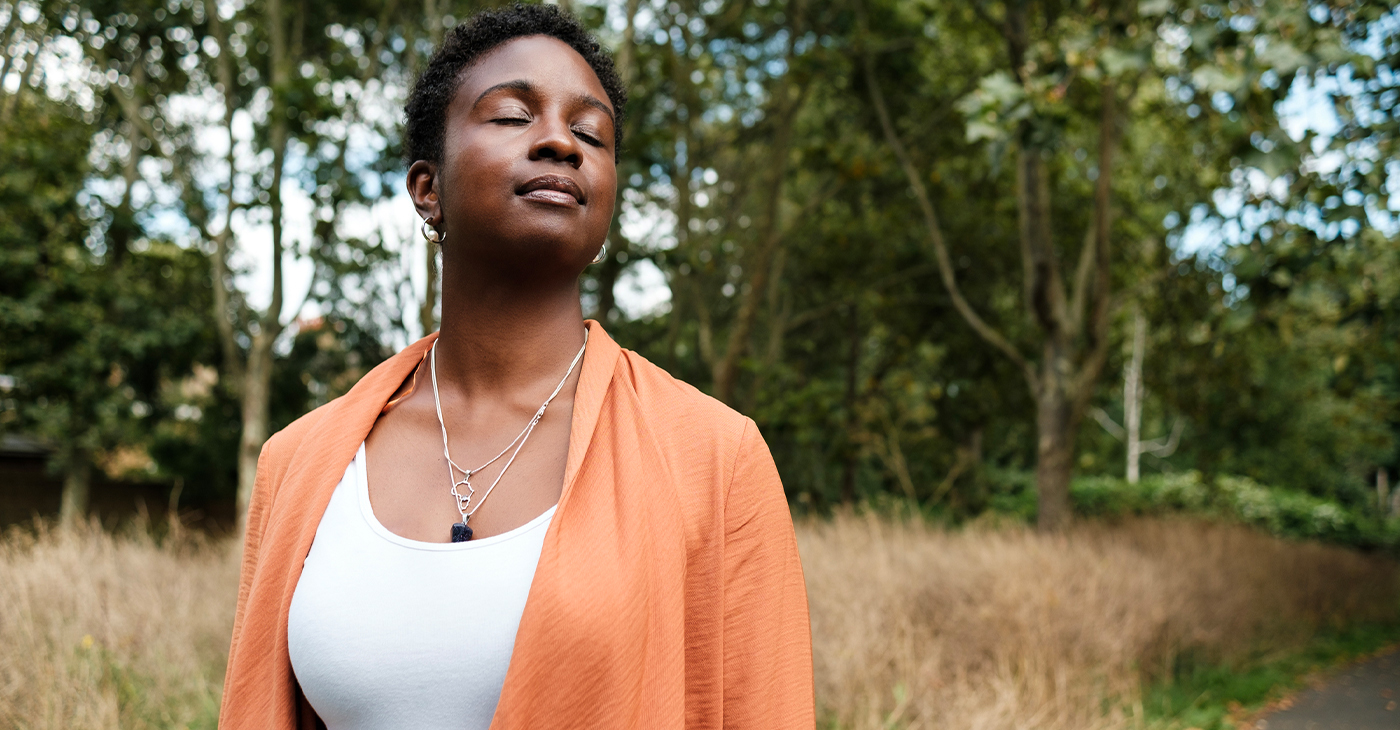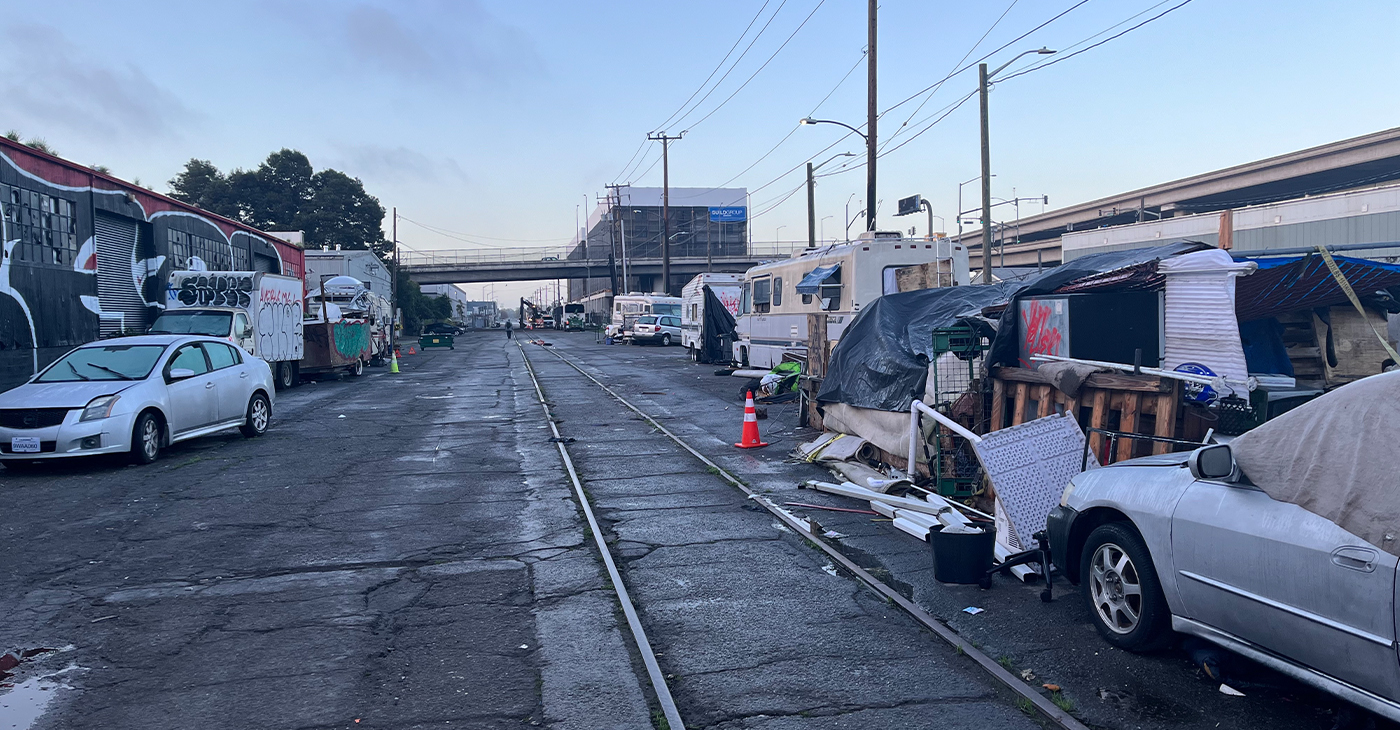Health
Cierra Sisters: Breaking the Cycle of Fear for Women with Breast Cancer

Bridgette Hempstead, founder and president of Cierra Sisters, a breast cancer awareness and support group for African American women, looks to educate and empower men and women about the realities of breast cancer in the African American community. (Chris B. Bennett/The Seattle Medium)
By Chris Bennett
Special to the NNPA from The Seattle Medium
Three days after being diagnosed with breast cancer on her 35th birthday Bridgette Hempstead, the mother of three daughters and a two-time breast cancer survivor, laid the foundation for a grassroots organization that has played an important role in educating, empowering and supporting African American women who have been diagnosed with cancer and cancer survivors.
Hempstead’s organization, Cierra Sisters, is dedicated to help break the cycle of fear and increase knowledge about breast cancer in the African American and underserved communities locally and nationwide.
Breast cancer is one of the most common cancers that occur in African American women, and ranks 2nd in all cancer-related deaths among African American women – who often receive a diagnosis in the late stages of the disease.
After her first diagnosis with cancer, Hempstead realized that there was a lack of information, education and resources targeting African American women as it relates to breast cancer and overnight she literally became one of the biggest advocates for women of color in the Seattle area.
“Right after my diagnosis I went on a very strong quest to start educating my friends, my family, and people in the community, and that was three days after my diagnosis before I even went in to have my initial surgery,” said Hempstead.
After her initial surgery and getting through that process, Hempstead’s doctors noticed her strength, courage and how she kept her fight with breast cancer into a proper perspective.
“My doctors were saying you’re really powerful, you’re not afraid, and you’re going through this head-on and they were saying that everybody doesn’t react like this and would you please start talking to the women,” recalled Hempstead.
According to Hempstead, the doctors started referring patients to her, and she began organizing the women to support each other through a buddy system.
“By the sixth month it was too many women coming to me, so we started to meet at [a local coffee house],” said Hempstead. “By that time I was so knowledgeable about the treatments, different options and how important it was to have a support it just started to develop into what Cierra Sisters is today.”
According to Hempstead, they choose the name Cierra because it is an African word that means knowing, and it also meant the color of brown – which represents the communities that they serve.
“I interpreted it as, if you have knowledge you have the power to fight against the effects of breast cancer,” said Hempstead.
Today, the organization, which operates on a very limited budget, has created awareness about the disease in underserved communities that, according to some cancer advocates, is unmatched by larger organizations with much larger budgets. The organization holds monthly meetings at the Rainier Beach Community Center, where they share information, help members create wellness plans, listen to guest speakers, and provide general and personal support for one another.
Despite being the public face of the organization as both the founder and president, Hempstead is not alone in her advocacy, and readily admits that the true strength of the organization lies within its members, who are dedicated to sharing their experiences and empowering others with the knowledge, strength and support to battle cancer. In addition to attending monthly meetings, members volunteer to help each other by driving other cancer patients to appointments, provide food, help clean the house of members who aren’t able to do so, and raising emergency funds for members when needed. They also provide information on restoring their finances after cancer, and end of life support for members and their families.
“You’d be surprised what can make a difference in somebody’s life,” said Hempstead. “It’s life-saving because the more support that you get and if you’re in a supportive community that’s going to embrace you your survival rate and your outcome will be so much better than someone who has no support.”
Valerie Dean, a member of Cierra Sisters who has been cancer free for 9 years, is grateful for the support that she received from the organization after she was diagnosed with cancer. According to Dean, the support that she received from the organization and its members played a significant role in helping her deal with her cancer and enjoy life after cancer.
Dean, like most people after initially being diagnosed with cancer, was afraid and “needed a lot of support.” In Cierra Sisters she found an organization that was full of love and support in more ways than she could imagine.
“Cancer affects the entire family, not just the one person,” says Dean. “It’s very expensive to have cancer and insurance does not cover everything.”
“This is a place where you can get genuine love and support,” she continued. “They are up on the latest and greatest cancer initiatives. They teach you how to eat, how to exercise and how to make your life better after cancer.”
According to Dean, the organization brought in a lot of experts to talk about a variety of issues at their monthly meetings. In addition, the members helped her ask the right questions of her doctors and to become mentally strong enough to overcome all aspects that people fighting cancer have to deal with.
“They recommended all the right doctors for me,” says Dean. “They recommended my gynecologist, my surgeon and my naturopath.”
While it may seem that the organization deals mainly with breast cancer patients and survivors, they are also very focused on education, prevention and early detection. Hempstead’s own story of survival is based on early detection and being very proactive with her doctor. She has also seen people die from cancer because they either were not diagnosed properly, early enough or in some cases were discouraged from being tested because they were younger than the age range that doctors general use to perform tests.
“My doctor didn’t even want to give me a mammogram because I was too young,” recalled Hempstead, who says that waiting until she reached the recommended time table for testing would have been a death sentence for her. “Since we know that some of the doctors are not as proactive as they should be, then you have to be proactive for yourself.”
Being diagnosed with cancer is not a death sentence, but Hempstead is quick to point out that people do die. However, she believes that living life is just as important as medication and treatment when it comes to dealing and overcoming cancer.
“I believe that when you’re diagnosed with any type of disease it’s almost an eye-opener that we are not immortal,” says Hempstead. “Some women in the past have been so afraid they don’t even want to go out and socialize anymore.”
“We want to be able to give these women the tools to go out and socialize,” she continued. “Go out and live your life and look at each day as an opportunity to make a difference in your own life and be able to make a difference in someone else’s life.”
Two years ago Hempstead had a recurrence of her disease, but her knowledge and resilience helped her overcome the disease again and served as a reminder that the fight against cancer is not just a process, it is also a lifestyle.
“It’s important to make sure you have the proper minerals in your body. I take more vitamins than I due medication, I only have one medication that I take,” says Hempstead. “Cancer works best in a weak immune system. It’s very important make sure you are eating the right things because you don’t want to eat something that going to help to promote the growth of the cancer.”
The influence of Cierra Sisters stretches far beyond the Puget Sound Area, Hempstead says that she gets calls from people from other states and has even housed some women who have come to Seattle for treatment. They are currently working on establishing chapters/relationships as far away as Africa.
While the name implies that the organization only serves women, anyone, male or female, who has had any type of cancer, is a relative of someone with cancer or just wants to be an advocate/supporter is encouraged to join.
“I’ve lived by faith for a long time and put a lot of my own personal funds into Cierra Sisters,” says Hempstead. “When you have organizations like Cierra Sisters and other organizations that are doing this type of work, it’s not hard work, it’s heart work. Its something you do because you have a love for the people.”
“It’s about building the relationship so that someone is going to trust that you are going to give them the best information, and that you’re going to support them through their medical crisis,” she added. “We’re here to share that information and share it freely.”
###
Bay Area
Mind, Body, and Spiritual Well-Being for Women Addressed in NAACP Forum in Oakland
The Women In The NAACP Oakland Branch is proud to announce the upcoming “Total You – Mind, Body, and Spirit Women’s Health Forum” scheduled for April 27 at Acts Full Gospel Church. Running from 9 a.m.-2 p.m. at 1034 66th Ave., this forum aims to provide an empowering platform for women to engage in discussions, gain knowledge, and access resources pertaining to their health and well-being.

Special to The Post
The Women In The NAACP Oakland Branch is proud to announce the upcoming “Total You – Mind, Body, and Spirit Women’s Health Forum” scheduled for April 27 at Acts Full Gospel Church.
Running from 9 a.m.-2 p.m. at 1034 66th Ave., this forum aims to provide an empowering platform for women to engage in discussions, gain knowledge, and access resources pertaining to their health and well-being.
The forum will feature renowned experts, healthcare professionals, and advocates from Genentech, John Muir Health, Sutter Health of The East Bay, Kaiser Permanente, and the Alameda County Public Health Department.
Our expert panel will address various aspects of women’s health, including physical, mental, and emotional well-being, and healthy relationships. The forum will encompass a wide range of topics such as breast cancer, menopause, reproductive health, nutrition, mental health awareness, preventive care, and much more.
Participants will have the opportunity to attend informative sessions, interactive workshops, and panel discussions led by experts in their respective fields. Additionally, there will be wellness activities, screenings, and informational booths offering valuable resources and support.
This forum is open to women of all ages and backgrounds, encouraging inclusivity and diversity in the conversation surrounding women’s health. Whether you’re seeking information for yourself, a loved one, or simply looking to connect with other women, this event promises to be enlightening and empowering.
For more information and to register for the Total You Women’s Health Forum, please visit https://www.naacpoakland.org/ or contact Dr. Delores Thompson. WIN chairwoman at (510) 328-3638.
The Women In The NAACP Oakland Branch is dedicated to empowering women, and young teen girls. We look forward to your participation in this important event.
To register, go to https://www.naacpoakland.org/events/the-total-you-womens-health-forum
Alameda County
Oakland Conducts Its Biennial ‘Point in Time’ Homelessness Count
Oakland, along with other cities in Alameda County, conducted their biennial ‘Point In Time’ census count on Feb. 1 to gain a thorough understanding of the size and dispersion of the homeless population in the region. The Point In Time (PIT) count is federally required by the Housing and Urban Development Department as a requirement to receive funding and resources to tackle homelessness in the area.

By Magaly Muñoz
Oakland, along with other cities in Alameda County, conducted their biennial ‘Point In Time’ census count on Feb. 1 to gain a thorough understanding of the size and dispersion of the homeless population in the region.
The Point In Time (PIT) count is federally required by the Housing and Urban Development Department as a requirement to receive funding and resources to tackle homelessness in the area.
David Modersbach, Grants Manager of Alameda County Health Care for the Homeless program, said that the methodology this time around was different, as this count had a much more personal “lived experience” aspect that previous counts did not have.
In 2022, the county relied more on statistical extrapolation and assumptions, but this year’s survey questionnaires allowed for details on substance abuse issues, how long someone has been living without proper housing, what resources people are in need of and much more.
“[The PIT count is] a critical opportunity for the county, Continuum of Care, and cities to understand the magnitude of homelessness in Alameda County. [The count] enables us to better allocate resources and implement effective programs to tackle this issue head-on in a compassionate and inclusive way,” Modersbach said.
St. Mary’s Center was one of the many meeting hubs across the county that hosted volunteers and community officials the morning of the count. The organization has been deeply involved in the effort to provide resources for unhoused people and others in need.
St. Mary’s is a nonprofit in West Oakland that helps seniors and preschool families with food and housing. Last year, the organization helped about 50 seniors find housing after they had fallen on hard times.
Sharon Cornu, executive director of St. Mary’s, said a lot of the older couples and individuals that come into the center have borne the brunt of the skyrocketing cost of living in the Bay Area. The most recent influx of seniors St. Mary’s has seen coming in for help has been made up of people who were evicted when the COVID-19-related moratorium on rent payment ended.
“Seniors are the fastest growing segment of the unhoused and the incredibly high cost of housing is driving them to the streets,” Cornu said.
Among the volunteers were workers with Operation Dignity, a nonprofit organization that helps veterans and those living on the street find shelter, transitional housing and supportive services.
“These are our stomping grounds,” Ivan Magana, program manager for Operation Dignity said.
Magana stated that his team was extremely familiar with the people residing in the encampments they were conducting the count in since Operation Dignity made many visits to these areas while doing community outreach. He said they had even informed some of the unhoused people they knew about the count a few days prior so they would not be alarmed when the enumerators showed up early in the morning to conduct the count.
Not everyone got the memo though, as the volunteers encountered an almost violent situation around the 6 a.m. when a young woman living in a bus yelled at the Operation Dignity workers to leave her alone.
Luckily, the three-year experience Mangana has working with Operation Dignity and his knowledge of therapeutic health services, equipped him with the techniques needed to deescalate the tension. The woman soon realized who the volunteers were and apologized, he said.
Another volunteer and Operation Dignity worker, Yolanda Kirkpatrick, noted that she was initially hesitant because of the early schedule. She felt the time deterred others from participating, too.
Her prediction would come true as the hours went on and they continued to walk along 24th St in downtown Oakland and there was very little activity on the streets.
The volunteers shared similar sentiments. Although the community the people they were engaging for the count and surveys encounter tend to distrust outsiders, the PIT count was necessary for the city to receive the appropriate level of federal funds to address a crisis that is spiraling out of control in California.
A full analysis and report of the count will be made available in the summer.
Community
For Cervical Cancer Month, Medical Community Focused on Education
January was Cervical Cancer Awareness Month. Physicians, advocates and others in the medical community commemorated the month by raising awareness about a form of cancer they say is highly preventable and treatable. Cervical cancer is caused by a virus called the human papillomavirus (HPV) and it develops slowly over time but can be prevented with proper care in girls as young as 13 years old.

By Magaly Muñoz
January was Cervical Cancer Awareness Month.
Physicians, advocates and others in the medical community commemorated the month by raising awareness about a form of cancer they say is highly preventable and treatable.
Cervical cancer is caused by a virus called the human papillomavirus (HPV) and it develops slowly over time but can be prevented with proper care in girls as young as 13 years old.
Sonia Ordonez, an OBGYN and gynecology surgeon at Kaiser Permanente, stated that as soon as people with cervixes reach the maturity reproductive age, they should start taking preventative measures like getting the HPV vaccine. The vaccine involves a series of two-doses for people aged 9 through 14 or three-doses for people 15 through 45 years old.
“I see a lot of young women who can’t remember or may not have gotten [the vaccine] when they were younger, or maybe got one, but we can give them the series of vaccines and restart at any point in time,” Ordonez said.
She said that cervical cancer is not the only cancer caused by HPV. Strains of the virus can also lead to throat, anal and penile cancers.
Screening is also an effective way to check for cervical cancer and should be done every three years after someone turns 21, doctors recommend. It is best to start as early as possible to catch occurrences early.
Ordonez said that this cancer is also more likely found in people of color and has led to more deaths overall.
A Mayo Clinic article published last month stated that Black women are more likely to be diagnosed and die of cervical cancer, compared to White women in the U.S.
2,000 Black women are diagnosed every year with cervical cancer and 40% die as a result.
“This disparity is not due to genetic differences among White, Black or Hispanic women, but rather related to systemic racism, access to healthcare and socioeconomic factors,” Dr. Olivia Cardenas-Trowers, a Mayo Clinic urogynecologist, said in the article.
Ordonez stated that immigrant women are also highly susceptible to the cancer, as many Latin American countries may not have accessibility to screenings or lack of insurance makes it harder for them to get tested.
Hispanic women are 40% more likely to be diagnosed with cervical cancer, and 30% more likely to die from it, as compared to non-Hispanic White women, according to the Office of Minority Health.
Family medicine physician, Joy Anyanwu, stated that the pandemic contributed to hesitancy about getting cervical cancer screenings among some women. Other factors are people’s aversion to vaccines, parents not wanting to believe that their children are or will become sexually active, and doubt about the overall effectiveness of the vaccine.
“The vaccine is very safe — over 97% effective in preventing cervical cancer,” Anyanwu said. “Even if you aren’t having sex, the earlier you start would actually help.”
Anyanwu said she understands that parents might not want to ask questions about their children’s reproductive health, but it’s a mindset that can be a barrier to having important conversation about prevention or care.
To keep families their families and communties healthy, the doctor emphasized that people should prioritize keeping up with their vaccine series and going to screenings every year.
-

 Activism4 weeks ago
Activism4 weeks agoOakland Post: Week of March 27 – April 2, 2024
-

 #NNPA BlackPress4 weeks ago
#NNPA BlackPress4 weeks agoCOMMENTARY: D.C. Crime Bill Fails to Address Root Causes of Violence and Incarceration
-

 #NNPA BlackPress4 weeks ago
#NNPA BlackPress4 weeks agoFrom Raids to Revelations: The Dark Turn in Sean ‘Diddy’ Combs’ Saga
-

 #NNPA BlackPress4 weeks ago
#NNPA BlackPress4 weeks agoCOMMENTARY: Lady Day and The Lights!
-

 #NNPA BlackPress4 weeks ago
#NNPA BlackPress4 weeks agoMayor, City Council President React to May 31 Closing of Birmingham-Southern College
-

 #NNPA BlackPress4 weeks ago
#NNPA BlackPress4 weeks agoBaltimore Key Bridge Catastrophe: A City’s Heartbreak and a Nation’s Alarm
-

 #NNPA BlackPress4 weeks ago
#NNPA BlackPress4 weeks agoBaltimore’s Key Bridge Struck by Ship, Collapses into Water
-

 #NNPA BlackPress4 weeks ago
#NNPA BlackPress4 weeks agoBeloved Actor and Activist Louis Cameron Gossett Jr. Dies at 87

















































